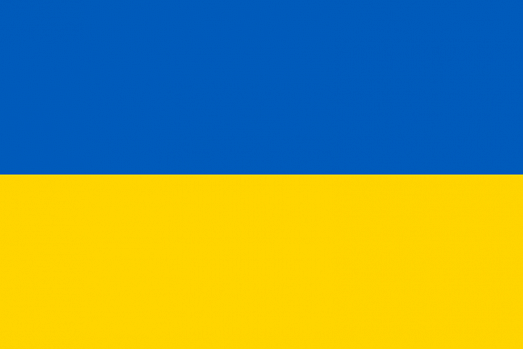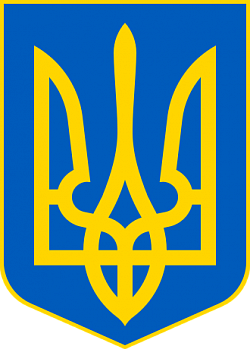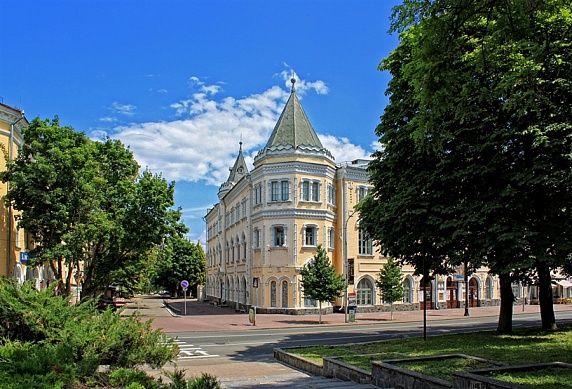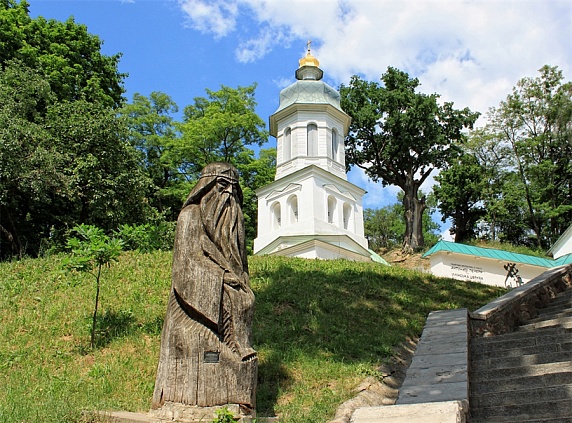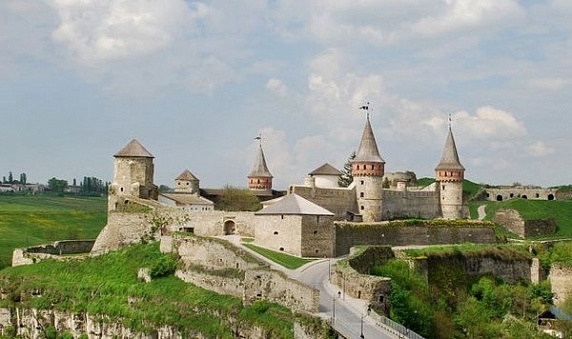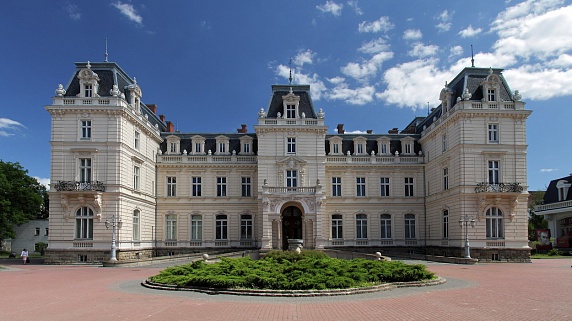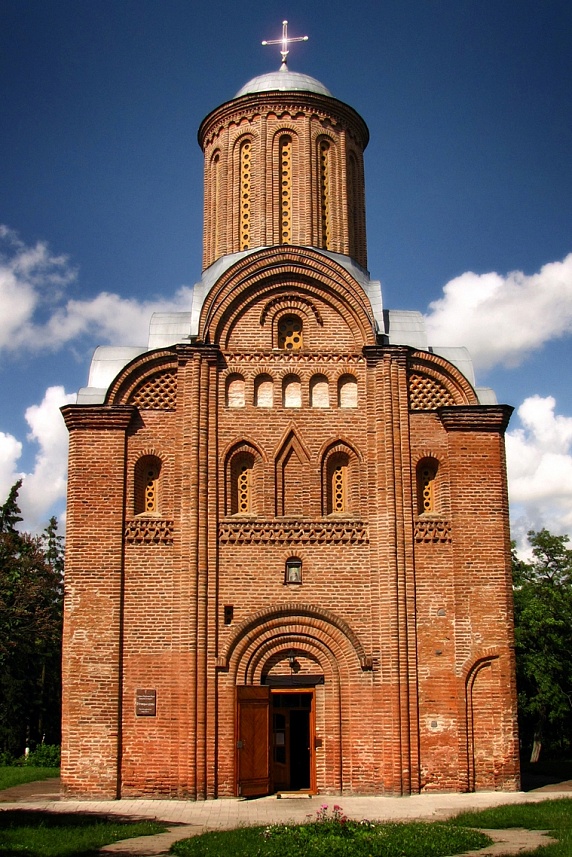 Ukraine
Ukraine
Interview by the Russian Foreign Minister Sergey Lavrov, given to the programme “Postscriptum” Moscow, 14 June 2014
Question: To all who are following the news around Ukraine closely, it seems that the West simply does not hear us. In your opinion, as a participant of the negotiation process, has anything changed?
Sergey Lavrov: Of course, it does change. You have made an absolutely correct observation – it is not that they do not hear us, they pretend that everything is happening in a different way. They still attempt to present the situation as one which needs settling between Russia and Ukraine, turning a blind eye that the cause of the problems being the refusal of the Kiev authorities to set up a respectful dialogue with the nationals residing in the South-East, who rejected the coup d'etat viewing it as unacceptable and who are categorically outraged by the attempts to impose laws against the use of Russian language, depriving the rights of the Russian-speaking and Russian population. Now it is the reality in Ukraine, we cannot get rid of it.
Instead of giving assistance to these people, inviting them to the negotiation table and agreeing about further life in the country for all those who live there, the military operation is continuing. The elected President Petro Poroshenko stated that he would stop it, and would support dialogue and de-escalation. Such contacts started in Kiev with the participation of OSCE representatives. It is not sufficient. It is important that these contacts are established directly with those people, who want to defend their rights in the South-East of Ukraine. Of course, such a dialogue is not possible, when there is the thunder of cannon, artillery shooting and strikes from military aviation.
Task number one is to stop the punitive operation. The President of Ukraine, Petro Poroshenko, after he was elected, confirmed that he was interested in setting up a dialogue. We will see. There is foundation for this – the Geneva Statement of the 17 April and the "roadmap" of the Swiss presidency of the OSCE, which was presented by the President of the Organisation, the President of Switzerland, Didier Burkhalter, after his visit to Moscow in the first week of May. We must concentrate on the implementation of these documents. The main point there is to stop of any violence. Of course, the first step should be an end to the use of the army against civilians and then setting up a dialogue between all the Ukrainian regions to reach a consent about ways of decentralisation of power and what should be done to allow nationals in all regions to elect their own governors, work, live and raise children in the language they want, retaining a known portion of taxes for themselves. These are details. You can call it– federalisation, decentralisation. The main thing is the nature rather than the name. However, the first step unconditionally and straight forwardly is the end to the military operation.
Question: Do you feel that the Kiev authorities are attempting to make, if not a step, then some movement in this direction?
Sergey Lavrov: As I have said, the elected President, Petro Poroshenko, made such a statement, although he had made other statements contrary to his disposition for a dialogue, namely, that the military operation should end with the victory over separatists, terrorists and so on, that there will be no talking to them. This is evil. How can you say that people who protect their homes and populated areas from armed people – the army, the National Guard, which was mainly formed of the Right Sector and criminals, are terrorists? Only a few people noted that a law was adopted by the Verkhovna Rada on the 6 May, without making a fuss about it. It lists many serious criminal offences, which are subject to amnesty, including those, which are still ongoing. According to some data, about 15,000 people could use such an amnesty, and when they were released this was substantiated by the fact that they joined the National Guard. The people, who are protecting their homes from sufficiently radical and aggressive armed people, who violate all the rules of humanitarian law, are called terrorists and separatists. This is unfair; this is not the way that will lead to the achievement of consent in Ukraine.
If we are discussing whether it is possible to negotiate with terrorists, then the current Kiev authorities have this in common with the United States. The United States make agreements with the Taliban without any hesitation, while the Taliban are not only accused of terrorism, they are unanimously called terrorists in the UNSC. Five persons from the Taliban list were exchanged for a military person from the United States, when the Americans needed this. To say that the people protecting their rights in Ukraine can be compared to terrorists in any way is on the brink of the good and evil.
Question: Russia has always had good relations with Finland. At the same time, the press started to write that Finland is as close to NATO as never. Have our relations been aggravated at all because of Ukraine?
Sergey Lavrov: I have not heard this during my recent meeting with the President of Finland, Sauli Niinistö. He said that there was a conference in the region of Turku at his initiative with participation of the leading state actors of Finland, political analysts and the community. This year this conference was devoted to the security issues. The President made a speech at it, and he told me about this. The Finnish mass media wrote about this as well. Sauli Niinistö made himself absolutely clear that Finland feels safe and does not want additional aggravation in this region of Europe. The President of Finland postulated that his country became a NATO member, in which case the border between NATO with Russia will double at once. He added that if Switzerland takes this path, the Baltic Sea will actually largely become an internal NATO sea. Do northern Europeans need this and how will Russia respond to this – the President Sauli Niinistö asked this question with quite an evident pretext that he knows the answer to them, and this answer is negative – nobody needs it.
We talked about this during our talk. He admitted that some politicians, including those who are interested in promoting their popularity, use this topic, and make parallels with Ukraine affirming that nobody can be secure, when Russia is so aggressive. These are cheap arguments, serious people understand this, and our talk with the President of Finland, Sauli Niinistö, confirmed this, he knows well that the Ukrainian events (the cause of almost all of its current misfortunes) are impossible in Finland by definition.
An unconstitutional coup, and the overthrowing of a legitimately elected president simply because he hesitated in making a signature on one or another document is unimaginable there. This does not fit into the Finnish mentality. Even more so that they do not allow any violations towards minorities. As it is known, only 6.5% of the population in the current Finland are ethnic Swedish, but Swedish is an official language. Between one third to half of the population in Ukraine are ethnic Russian, over a half talk and think in Russian, and in this situation it is impossible to take a decision to make Russian the second official language.
And the Finnish cannot imagine that there can be a situation, when people attempting to protect their rights, receive an act of force from the army in response. The leaders of the Finnish Republic are fully aware that the situation in Ukraine is not possible in their country by definition. We should look at the Finnish as an example, when deciding how to live in a country, resolve the problems of minorities and set up relations between civilians.
Question: You are certainly familiar with the interview by the Minister of Foreign Affairs of Poland, Radoslaw Sikorski, who announced that "Russia would be a better ally of the West than a dependant of China" etc. Not a good statement. What do they want from us?
Sergey Lavrov: It is hard to understand this. Radoslaw Sikorski quoted Zbigniew Brzezinski having said that "Russia would be a better ally of the West rather than a dependant of China". It is one thing when a political analyst, who is quite old, with no official position, can allow himself to make different irresponsible statements – but it is something else when a foreign minister of a large European country quotes this political analyst, emphasising that he agrees with him completely. These are improper statements for any serious politician. Radoslaw Sikorski also stated that Russia would lose in a confrontation with NATO, because the power balance is 1 to 16. Who is going to fight with NATO and who in NATO is going to fight with Russia, I do not know.
Radoslaw Sikorski is a good acquaintance of mine. During our talk I will ask him for the reason of his еpatage statements, although he is famous for exotic statements. Probably this is his aspiration to participate in some race for a European position. His name was mentioned in connection with the potential future rearrangements in the EU and NATO. I do not exclude that this is his aspiration to use such statements to attract attention to himself. I will ask him, and let us see what he answers.
